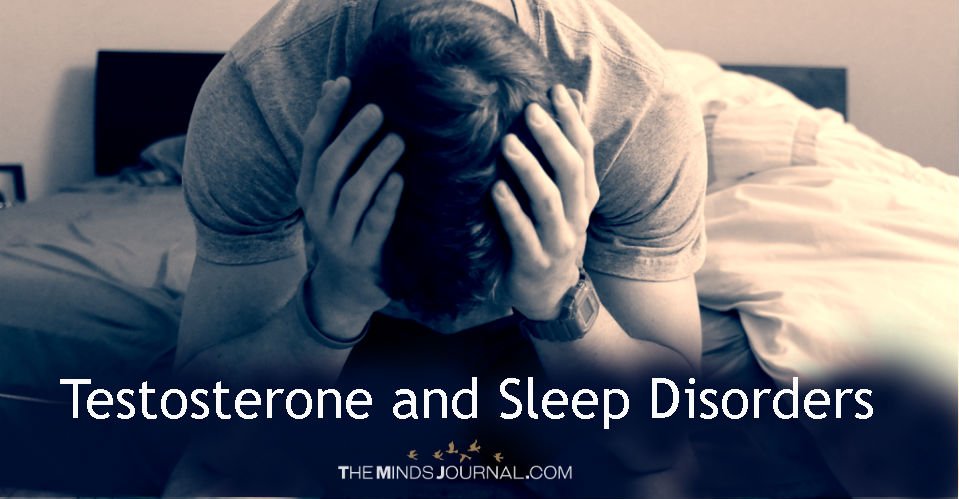Testosterone and Sleep Disorders: Important Information
You may blame it on aging, stress at work, or not enough time in the day, but lack of sleep also has other causes. There is a significant connection between changing levels of testosterone and sleep disorders as you age.
You have probably heard that people need less sleep as they get older. That is about as far from the truth as you can get. When it comes to “fake news,” the lack of sleep and age connection tops the list.
The truth is that older adults need just as much sleep as their younger counterparts. According to the National Sleep Foundation, adults between age 26 and 64 require 7 to 9 hours a night. After age 65, the minimum stays at 7 hours but generally caps at 8 hours a night.
Why is it so important to get the minimum recommended amount of sleep?
Your body produces crucial hormone while you sleep, primarily testosterone and growth hormone. If you get less than the minimum 7 hours, you are not allowing your body the time it needs to manufacture, secrete, and use these critical hormones at night.
This connection between testosterone and sleep is essential to understand. When your testosterone levels decline, you put yourself at risk for a host of other medical issues. The incidence of developing the following health conditions increase when Low T is present:
- Atherosclerosis
- High blood pressure
- Cardiovascular disease
- Obesity
- Dementia
- Elevated LDL cholesterol and triglycerides
- Osteoporosis
- Stroke
- Heart attack
- Anemia
- Type 2 diabetes
- Metabolic syndrome
Low Testosterone Levels and Insomnia
The connection between low testosterone and sleep disorders is one to understand so that you can improve your well-being. If you do not get enough sleep, your testosterone and growth hormone levels will decline. Your body does not have the proper amount of time to produce these hormones. As their levels drop, the body responds by secreting another hormone – cortisol – into the bloodstream to compensate. Cortisol promotes the secretion of ghrelin, the hormone responsible for hunger. Ghrelin will warn the body that it needs to eat to provide energy to the cells. That energy typically comes from growth hormone and testosterone, but their levels are low. The result is that you eat more than you should and wind up gaining weight. Increased weight leads to lower levels of testosterone and growth hormone. Higher cortisol levels also make it hard to relax and fall asleep at night – leading to insomnia. When you cannot fall asleep, your sleep duration reduces further.
Reading that probably reminds you of being on a hamster wheel – going around in circles and getting nowhere. You become fatigued. Your issues of low testosterone and sleep disorders continue to worsen with the passing of time. And if you want to know more about the influence of testosterone on your body visit https://www.nexelmedical.com/testosterone-therapy, here you’ll find proved medical information about it.
Testosterone and Sleep Apnea
Another concern is sleep apnea, a condition that can lead to premature aging, weight gain, and fatigue. People with sleep apnea often snore loudly and awaken gasping for air. What is the connection between testosterone and sleep apnea?
First, people with low testosterone tend to gain weight. Both males and females with Low T are often overweight. Most of that weight will wind up as abdominal fat, the most dangerous type you can have. The fat crowds your internal organs, infringing on the lungs. Sleep apnea causes you to stop and start breathing over and over during the night. It taxes the body and reduces the time spent in deep, slow-wave sleep. That is when hormone production occurs.
The next issue between testosterone and sleep disorders is the link to increased risk of sleep apnea from testosterone therapy. Now, this may sound a bit confusing. People with Low T have a higher risk of sleep apnea, but testosterone therapy can also worsen the problem.
The good news is that it is short-lived because once most people begin to lose weight from testosterone therapy, their sleep apnea starts to improve.
Sleep Deprivation and Low Testosterone
Sleep deprivation is a serious concern that should not be taken lightly. Nor should it be remedied with sleeping pills that leave you groggy. It is always best to get to the root of the problem and treat that, rather than masking a symptom. In the case of low testosterone and sleep disorders, you want to go straight to the cause – Low T. When you increase testosterone levels, your sleep will improve exponentially.
Most people who receive doctor-prescribed testosterone therapy find that better sleep is one of the first benefits they notice. Of course, with better sleep comes more energy. Cortisol levels will decline. You will not need to overeat to create energy. Testosterone helps to improve metabolic functions, so the body can begin to burn its stored fat for added fuel. As your sleep improves, your body can produce and utilize hormones such as testosterone and growth hormone better.








Leave a Reply
You must be logged in to post a comment.